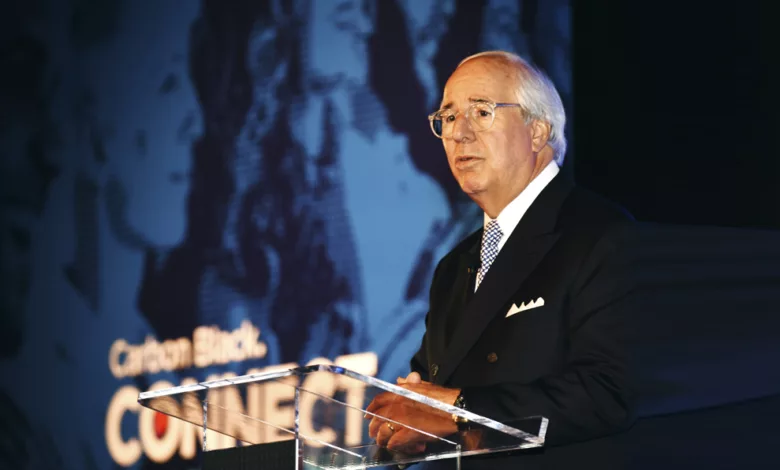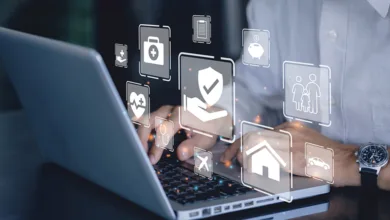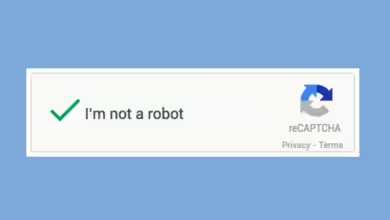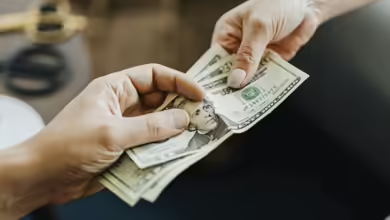Catch Me if You Can’s Real Frank Abagnale Shares Advice on How to Avoid Being Scammed

Different situations bring out an abundance of fraud — here are some tips to help prevent you from becoming a victim.
Frank Abagnale is a respected authority on forgery, embezzlement, and secure documents. For the last 40+ years, he has worked and consulted with financial institutions, businesses and government agencies – particularly the FBI – around the world. Mr. Abagnale’s expertise in these areas began over 5 decades ago when he was recognized as one of the world’s most famous con men. His real life story served as the inspiration for the film, Catch Me If You Can, in which Leonardo DiCaprio portrayed his character.
We sat down with Mr. Abagnale to get his valuable advice on how to be safe from scammers now and in the future.
Fyi50+: What is the most important advice you could give consumers during this time?
Frank Abagnale: Now more than ever, you have to be a wiser consumer and business owner. You have to educate yourself on all of these scams that are being perpetrated every day and costing individuals and businesses billions of dollars. Now is the time you hang up the phone on callers you do not know. You do not answer phishing emails that are asking you for money or personal information. Whether it’s the IRS scam, a romance scam, sweepstakes scam, grandparents’ scam, or any other type of scam, they all have two red flags. At some point, the scammer is going to ask you to provide them with personal information or ask you for money. If you do not know who is on the other end of that call or email, do not make the mistake of providing information or money. The other red flag is the caller wants you to provide this information/money immediately.
Fyi50+: Is the crisis making it easier for con artists to scam people? How?
Frank Abagnale: Yes, it is! Scammers are doing what they always do – using headlines as opportunities to steal money or sensitive personal information. Scammers are coming out of the woodwork on all sorts of scams. The scammers are benefiting from the fear created by the coronavirus.
Here are a few things to look out for:
- Scammers are offering coronavirus testing. Some are going door-to-door – in an attempt to steal your health insurance or Medicare information to submit false claims. Never provide your Medicare number to anyone but your medical professionals.
- Scammers are making phone calls, saying they need your bank account information to deposit your “Trump dollars.” Please only follow the information on any financial support from a source you trust and that you can validate.
- Scammers are making robocalls for air duct replacement to help keep coronavirus out of your home. These calls are a flat-out scam.
- Be careful of text messages falsely claiming to be from the U. S. Department of Health and Human Services. They ask you to click a link to take a “coronavirus preparedness” test. Instead of a download, it puts malware onto your device.
- At this time, there is no vaccine, treatment, or cure for Covid19. Ignore offers online or in stores that claim to offer treatment or cure.
- Be on the lookout for requests for donations to help people affected by the coronavirus. Ask the caller to send you information by mail, and to defer any decision to donate to a cause until you’ve researched it. Online options include charitynavigator.org and give.org.
- Be suspicious of any emails claiming to be from CDC or experts saying they have new information about the virus. Emails from local, state, or federal government entities will come from a .gov address.
Fyi50+: What else do you feel is essential for readers to know?
Frank Abagnale: The most popular scams for 2020 are job fraud, census scams, election scams, Medicare cons, phishing Amazon and Covid-19 cons.
Fyi50+: Your latest book, Scam Me If You Can, seems like a particularly relevant read during this vulnerable time. Is there anything you would mention about the book that would be helpful in our current situation?
Frank Abagnale: I have taught at the FBI Academy for more than 44 years, and several of those years, I have been an Ambassador to AARP dealing with scams and frauds. AARP commissioned me to write Scam Me If You Can, as a resource to keep people informed. All of the advance and royalties go to AARP. Before writing the book, they requested I cover all scams, including those against millennials, seniors, investment scams, etc.
In working with banks, corporations, governments, and individuals for over four decades, I have never seen as much fraud as I see now during this pandemic.
Finally, I am concerned about the following three types of fraud going on during this crisis:
- The enormous number of scams being perpetrated against American consumers by individuals and organized crime from all over the world.
- The malicious activities committed by individuals, for example, a letter was sent out a few weeks ago on what appeared to be a City of Charleston letterhead. The letter invited college students to come to an address to line up for a test vaccine, and they would be compensated $5,000.00 for participating in the test. The scammer did not receive any monetary reward. It was for the sole purpose of being malicious and causing people harm.
- I hope the Government will do a better job of protecting the taxpayer’s money from fraud. After Hurricane Katrina in 2005, the Government discovered that about 10% of its payments turned out to be fraudulent. If fraud of that scale happens with the CARES Act direct payments, the IRS risks wasting $30 billion dollars of taxpayer money. In times like these, that is a lot of money.
Here are additional steps you can take now to protect yourself from fraudsters:
- Opt-out of pre-screened credit card offers. Call 888-5-OPTOUT or visit optoutprescreen.com.
- Go paperless, so someone can’t steal your mail, especially your bills and your bank statements.
- Shred everything. Those barcodes on your magazine subscriptions contain a lot of info about you. Your ATM receipt has a partial account number.
- Make a copy of every card you carry in your wallet, then put this paper somewhere safe at home. If your wallet gets stolen, you will have a record of the contents. Make a copy of the back of the cards, too, since the 800 number to call is usually there.
- Freeze your credit. Someone could still perpetrate healthcare or other scams, but they can’t open a new credit card in your name with your credit frozen.
- Think before you log onto an open WIFI network. Chances are it is worth about what you are paying for it.
- If a form asks for your social security number, leave it off. Most of the time, it isn’t necessary.
- Never give anyone, no matter who they claim to be, personal information over the phone, especially not account numbers, passwords, secret question answers.
- Think long and hard before you click on any links in your email or while browsing. Think!





